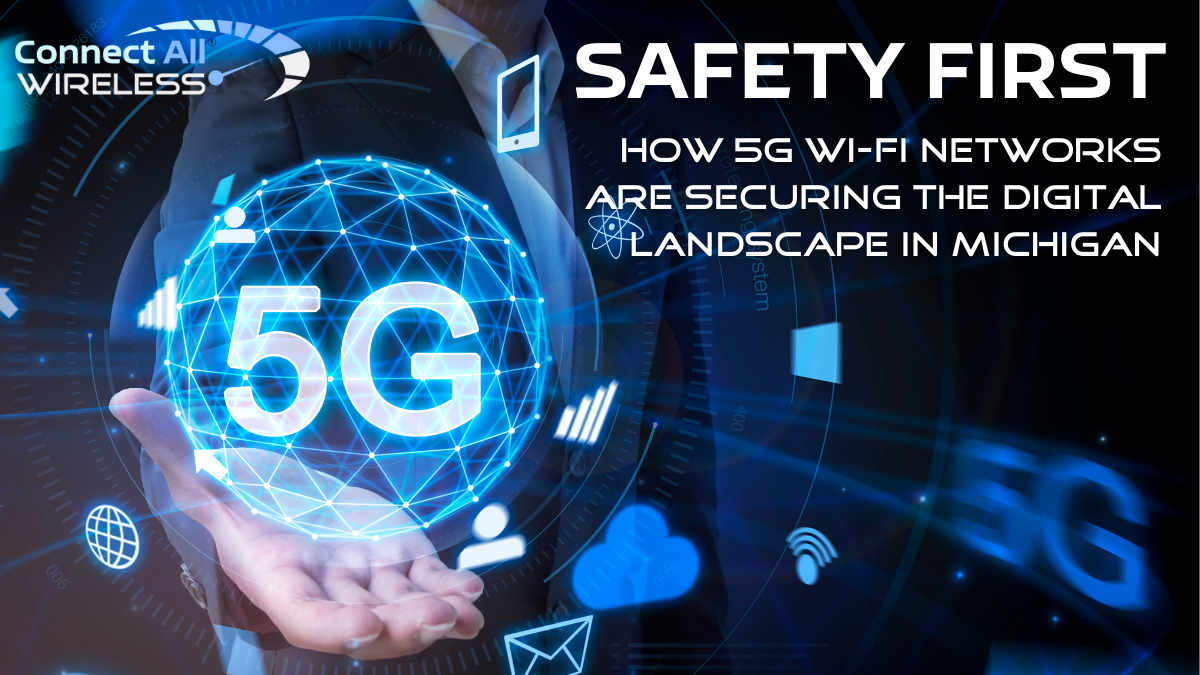5G Wi-Fi Networks Securing Digital Landscape
July 23, 2023In an increasingly interconnected world, the demand for faster and more reliable internet connectivity has led to the development of advanced technologies like 5G Wi-Fi networks. Michigan, like many other states, is witnessing the rollout of this revolutionary technology. But what often goes overlooked in the excitement of faster speeds and enhanced connectivity is the importance of security. In this article, we will explore how 5G Wi-Fi networks are not just about speed but also about ensuring the safety of Michigan’s digital landscape.
The Need for 5G Wi-Fi Security
Before delving into the specific security features of 5G Wi-Fi networks in Michigan, it’s crucial to understand why such measures are needed. With the ever-expanding use of the internet, the digital landscape has become a playground for cybercriminals. They constantly seek vulnerabilities to exploit, making cyber security an absolute necessity.
Traditional Wi-Fi networks, while functional, have their limitations when it comes to security. Hackers can infiltrate these networks relatively easily, posing risks to both individuals and organizations. This is where 5G Wi-Fi networks in Michigan come into play.
Encryption and Authentication
One of the most significant ways in which 5G Wi-Fi networks enhance security is through advanced encryption and authentication protocols. These networks utilize the latest encryption standards to protect data as it travels between devices and the network. This means that even if cybercriminals intercept the data, it’s virtually unreadable without the decryption key.
Moreover, 5G Wi-Fi networks implement robust authentication processes. Devices connecting to these networks undergo stringent verification, ensuring that only authorized users gain access. This prevents unauthorized access and the potential for data breaches.
Network Slicing for Isolation
Michigan’s 5G Wi-Fi networks also leverage a technology called network slicing. This innovative feature allows network operators to divide the network into isolated segments. Each segment serves a specific purpose, such as critical infrastructure, healthcare, or personal use. This isolation means that even if one segment is compromised, it won’t necessarily affect the security of other segments, effectively containing potential threats.
Reduced Latency and Enhanced Security
5G networks offer remarkably low latency, making real-time communication and data transfer seamless. But how does this relate to security? Lower latency means that security measures can be implemented in near real-time. Suspicious activities can be detected and addressed faster than ever before, reducing the window of opportunity for cyberattacks.
Improved IoT Security
The Internet of Things (IoT) is becoming increasingly prevalent in Michigan, with smart homes and connected devices becoming the norm. However, IoT devices are often vulnerable to cyberattacks due to their limited security features. 5G Wi-Fi networks offer improved security for IoT devices by enabling network operators to implement stringent security protocols, protecting both the devices and the data they transmit.
Conclusion
As Michigan embraces 5G Wi-Fi networks, it’s crucial to recognize that these innovations go beyond just faster internet speeds. They are the cornerstone of a safer digital landscape for individuals and businesses alike. With advanced encryption, authentication, network slicing, reduced latency, and enhanced IoT security, 5G Wi-Fi networks are actively working to secure Michigan’s digital future. So, while enjoying the benefits of lightning-fast internet, remember that safety always comes first in this ever-evolving digital world.


